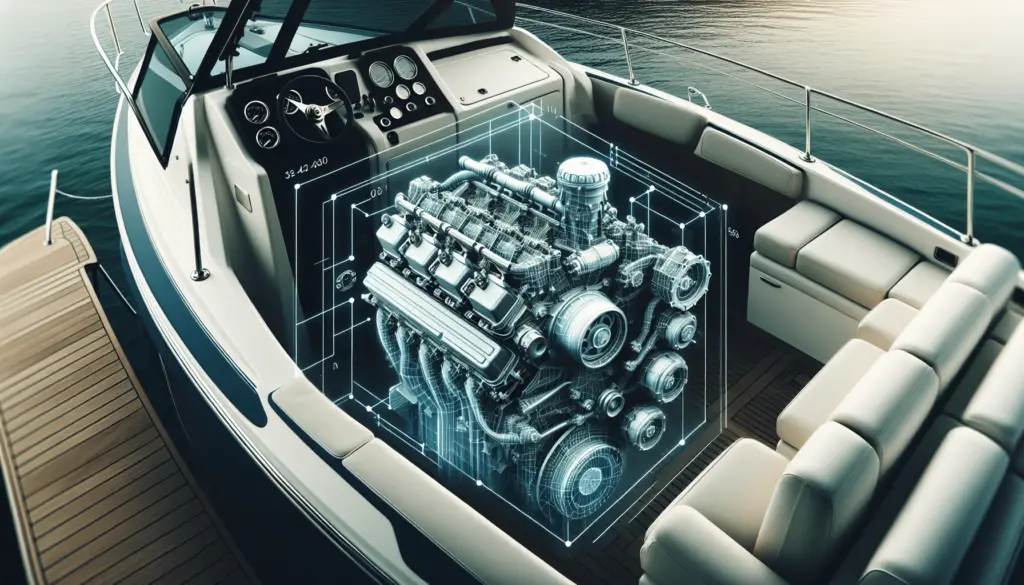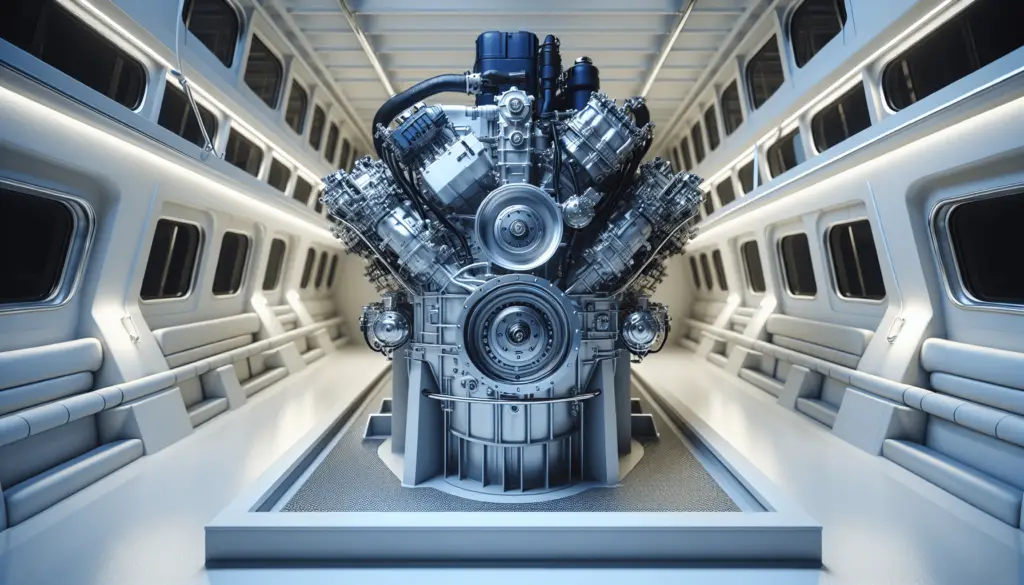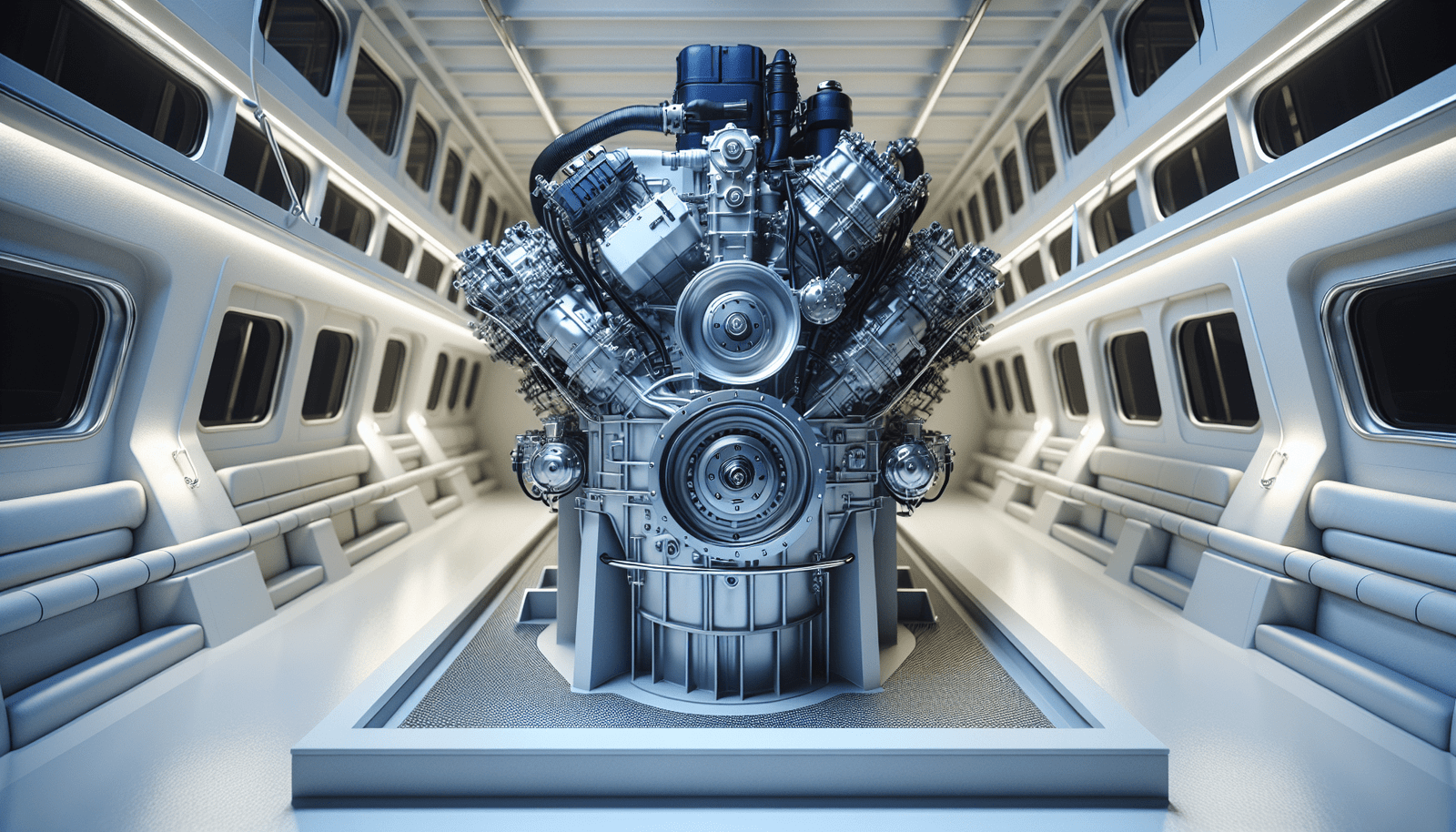Think for a moment about the tranquil beauty of the sea and the majestic sails of boats that effortlessly glide through the water. How much does this serene image contrast with the reality of the boat engines that often power these vessels and their impact on our planet? In this article, “Understanding The Role Of Boat Engines In Climate Change”, you will get a clear picture of how these necessary inventions contribute to global warming. Your knowledge about physical science, earth science, and environmental science will undoubtedly be enriched as you explore one of the lesser-known sources of greenhouse gas emissions – marine transportation.
Overview of Boat Engines
Description of Boat Engines
Boat engines are integral parts of marine vessels, acting as the main power source for moving the boat in water. Not all boat engines are the same. They come in diverse sizes, types, and power capacities, determined primarily by the type and size of the boat they serve. A boat engine can be either an inboard engine, which sits inside the boat, or an outboard motor, which hangs off the rear. Regardless of their categorization, all boat engines combustion fuels to generate the power required to propel boats.
Types of Boat Engines
There are several types of boat engines, depending on the power source and kind of operation required. The most common ones include the “inboard motor,” “outboard motor,” “sterndrive engine,” and “jet propulsion engines”. Inboard motors are equipped inside the hulls of larger boats and yachts and are connected to a drive shaft that works the propellers. Outboard motors are fastened to the outside of the boat and provide easy steering since they pivot around their mount. Sterndrive engines, also known as inboard/outboard motors, combine features from both inboard and outboard engines, providing more horsepower. Lastly, jet propulsion engines essentially suck in water from the bottom of the boat and then expel it out at high speed.
Common Fuels Used in Boat Engines
Boat engines operate using a variety of fuel types, the most common of which are gasoline, diesel, and increasingly, biofuels and electricity. Gasoline is the most frequently used fuel onsite it is readily available and produces high power output. Diesel, primarily used for inboard engines, is known for its robustness, fuel efficiency, and longevity. Biofuels are becoming popular as an eco-friendly fuel alternative while increasing technologies maturity allows for cleaner electric engines.
Functioning of Boat Engines
Basic Operations of Boat Engines
Boat engines operate similarly to car engines but with a few tweaks to adapt them to marine conditions. They intake air, mix it with fuel, and ignite this mixture in a combustion chamber. The resulting explosion of this ignition generates power, which is transmitted to the propellers through the drive shaft in the form of rotating force, propelling the boat forward.
Combustion Process in Boat Engines
The combustion process in boat engines involves igniting a mixture of air and fuel to create a powerful explosion that drives the piston down, turning the crankshaft. This rotating force propels the boat forward. The type of fuel used and the engine’s efficiency significantly impact how complete this combustion process is.
Emissions from Boat Engines
Boat engines, like all internal combustion engines, generate emissions as a byproduct of the combustion process. These emissions majorly include carbon dioxide (CO2), nitrogen oxides (NOx), sulfur oxides (SOx), and particulate matter. The quantity and type of pollutants emitted largely depend on the engine type, fuel type, and combustion efficiency.

Impact of Boat Engines on Climate Change
Greenhouse Gases Emissions from Boat Engines
Boat engines contribute to greenhouse gases emissions, primarily carbon dioxide (CO2), due to the burning of fossil-based fuels such as diesel and gasoline. These greenhouse gas emissions trap heat in the atmosphere, contributing significantly to global warming and subsequent climate change.
Contribution of Boat Engines to Global Warming
The contribution of boat engines to global warming is substantial. Even though they do not emit as much as other primary sources like industries or vehicles, their impact cannot be ignored. To put it into a perspective, the marine sector, as a whole, contributes approximately 2.5% of global greenhouse gas emissions.
How Boat Engine Emissions Compare to Other Sources of Greenhouse Gases
Compared to other major sources of greenhouse gas emissions like power plants, industries, and land transportation, boat engine emissions might seem less significant at a first glance. However, the number gains substantiality when you consider the global volume of marine transport and recreational boating. Hence, the cumulative effect of boat engine emissions is considerable and cannot be ignored.
Effects on Oceans and Marine Life
How Emissions Affect the pH of Oceans
Excessive carbon dioxide emissions from boat engines get absorbed by the ocean, leading to ocean acidification. This process decreases the pH of the seawater, making it more acidic, which, in turn, leads to a hostile environment for marine life, particularly for calcifying species such as coral and shellfish.
Impact on Marine Biodiversity
Boat engine emissions don’t just heat up the planet, they also directly affect marine biodiversity. Particulate matter released from boat exhausts can contaminate marine ecosystems, harming various marine species’ health and negatively impacting their population and distribution.
Bioaccumulation and Biomagnification of Pollutants
Bioaccumulation is the process by which certain toxic substances from the environment accumulate in organisms. Boat emissions can lead to the bioaccumulation of harmful pollutants in marine organisms. Over time, these toxins can become magnified in the marine food chain, a process known as biomagnification, leading to severe consequences for top predators and human health.

Regulations on Boat Engine Emissions
Existing International Standards and Regulations
There are already several international standards and regulations in place for reducing boat engine emissions. The International Maritime Organization (IMO), for instance, has set regulations to reduce SOx and NOx emissions. Also, specific standards require fuel suppliers to provide fuels that meet these specifications.
Role of Governments and Institutions
Governmental bodies and institutions play a significant role in regulating boat engine emissions. By implementing stricter emission standards, investing in green technologies, and enforcing compliance with existing regulations, they can significantly lower the environmental impact of boat engines.
Challenges in Implementing and Enforcing Regulations
Despite the presence of regulations, enforcing them is often challenging due to a lack of global governance on the high seas, the complexity of international trade, and problems in monitoring and enforcing compliance at sea. Additionally, developing countries often lack the infrastructure and resources to implement these rules effectively.
Technology Advancements in Boat Engines
Development of Cleaner Engines
There have been advancements in developing cleaner boat engines that burn fuel more efficiently and emit lower amounts of pollutants. These modern engines implement technologies such as direct fuel injection and exhaust gas recirculation to reduce emissions.
Adoption of Alternative Energy Sources
The boating industry is also witnessing the gradual adoption of alternative energy sources. These include biofuels, solar power, and hydrogen fuel cells. These alternative energy sources can significantly reduce the climate impact of boating by reducing reliance on fossil fuels.
Prospects for Electric and Hybrid Boat Engines
Electric and hybrid boat engines offer a promising clean energy future for the maritime industry. Electric engines, which produce zero emissions at point of use, are relatively quiet and require less maintenance than conventional engines. Hybrid engines, a combination of combustion engines and electric motors, offer greater flexibility and efficiency, contributing to fewer emissions.
Role of Individuals and Communities
Raising Awareness on the Issue
Individuals and communities can take a proactive role by raising awareness about the environmental impact of boat engines. From participating in conversations to spreading awareness about sustainable practices, every step counts.
Promoting Responsible Boating
Promoting responsible boating habits also plays a key role in mitigating the environmental impact of boat engines. This can include regularly maintaining engines, using environmentally-friendly fuels, avoiding sensitive habitats, and preferentially choosing quiet, low-emission engines.
Community Initiatives to Mitigate the Impact
Community efforts to counteract the impact of boat emissions can also be greatly beneficial. Such initiatives can involve anything from local clean-up drives to lobbying for better laws, regulations, and commercially available green technology options.
Potential Solutions and Alternatives
Sustainable Boat Design and Manufacturing
Investment in sustainable boat design and manufacturing can also play a significant role in mitigating the environmental impact of boat engines. These designs could incorporate lighter materials for better fuel efficiency, hull designs that reduce drag, and the use of renewable energy for propulsion.
Use of Clean and Renewable Energy
The adoption of clean and renewable energy in the form of solar, wind, or tidal power offers a promising solution. Solar panels and wind turbines can be installed on boats to generate electricity, reducing the reliance on fossil fuels.
Role of Research in Finding Solutions
Research and development can effectively guide the way to discover more sustainable solutions for boat engines. Innovative fuels, alternative propulsion techniques, and improved engine efficiency are all fields ripe for exploration and development.
Case Studies of Successful Reduction in Emissions
Examples of Countries and Communities Who Have Successfully Reduced Boat Emissions
Several countries and communities have successfully implemented measures to reduce boat emissions. For example, Norway has been an active promoter of electric ferries, significantly reducing maritime emissions. The sailing community in New Zealand has also achieved success with extensive use of hybrid boats.
Technological Innovations That Have Reduced Emissions
Technological innovations like energy-efficient ship designs, renewable-energy powered boats and autonomous vessels are making waves in the maritime sector. The use of wind propulsion technology in commercial shipping offers a good example of this, as it significantly reduces fuel consumption and emissions.
Policy Implementations That Have Showed Positive Results
Policy implementations across the globe, from emission control areas to mandatory speed limits for boats, have helped reduce boat emissions. The cap on sulfur content in fuels imposed by the International Maritime Organization serves as a notable example of impactful policy implementation.
Future Outlook on Boat Engines and Climate Change
Predictions on Future Boat Engine Technologies and Their Impact
The future of boat engine technologies looks increasingly green, with significant developments expected in hybrid, electric, and alternative fuel engines. Therefore, the emergence of these advanced technologies has the potential to drastically reduce greenhouse gas emissions from boats.
Potential of Policy Changes in Reducing Emissions
There is a vast potential for policy changes to contribute to reducing boat engine emissions. Stricter emission standards, incentivizing green vessel designs, and promoting alternative fuels can all play a part. However, their success will rely heavily on effective implementation and compliance monitoring.
Role of Ongoing Research and Development Efforts in Combating Climate Change
Finally, considerable power rests in the hands of ongoing research and development efforts to combat climate change caused by boat engines. A clear understanding of every aspect of boat engine emissions’ impact on the environment and human lives will pave the way for developing innovative solutions. From designing cleaner engines to perfecting alternative propulsion techniques and fuels, we can hope to achieve a massive transformation in mitigating climate change impacts from the maritime sector.

